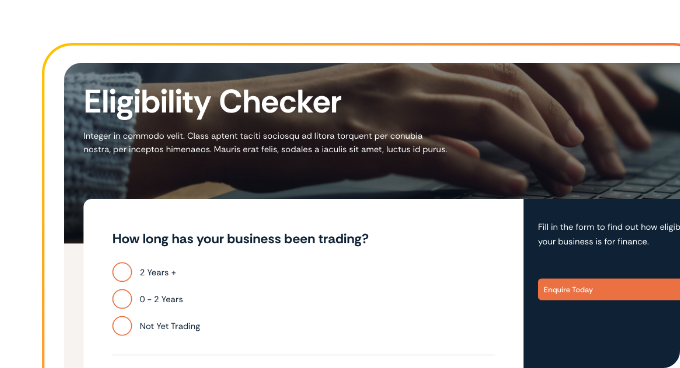What I Dislike About The Finance Industry
What is the Growth Guarantee Scheme (GGS)? Find Out if You’re Eligible
In Spring 2024, the UK government announced it would be extending the Recovery Loan Scheme, or RLS, which initially aided small businesses at the height of the COVID-19 pandemic.
During this period, many business owners struggled to access funding, faced having to furlough employees, and even considered having to shut down completely, in the face of an uncertain route out of lockdowns.
Thankfully, that time has long passed – but SMEs can still access government-backed lending through the RLS under its current name, the Growth Guarantee Scheme, or GGS.
In this guide, we break down what the GGS does, how to check if you’re eligible, and how to apply.
Disclaimer: Origin Finance is not a financial advisor, and we therefore offer the following guide for general information purposes only – it does not constitute advice in any shape or form. We recommend that you seek advice from a professional service before applying for any kind of business finance after reading this guide.
What does the Growth Guarantee Scheme do?
The GGS is a borrowing scheme that allows eligible UK businesses to access up to £2 million per facility (£1 million for businesses within the Northern Ireland Protocol).
It’s administered via the British Business Bank, and is available through accredited lenders (who our team can connect you to).
Any loans agreed under GGS are 70% guaranteed by the government, making it easier for smaller businesses to access funding as the economy continues to recover. At present, the scheme is open until March 31st, 2026.
This guarantee means that, if your business defaults on the funding, the accredited lender can recall 70% from the government. From your perspective, as a borrower, you are still 100% responsible to pay back any debt due – which is why it’s always vital to check any small print that might apply.
You can access GGS funding in the form of invoice finance, overdrafts, asset finance, and term loans. In Great Britain, funding through invoice financing starts from £1,000, and each business group can access £25,001 to £2 million. Within the NI protocol, the minimum remains the same, but you’re capped at a maximum of £1 million.
Who is eligible?
The Growth Guarantee Scheme is open to limited companies, limited partnerships, sole traders, corporations, community benefit societies, limited liability partnerships, and co-operatives.
You must:
- Operate and be incorporated in the UK
- Have been actively trading within the UK for at least two years
- Turn over less than £45 million each year
- Make at least half of your company revenue from trading activities (actively selling – unless you’re a charity or are based in further education)
- Intend to use funding purely for business purposes
- Have a viable business proposition
- Not be in any form of ‘difficulty’ (e.g., insolvency)
Beyond this criteria, accredited lenders will undertake full credit checks and check your case for fraud. The way checks are carried out will vary depending on the lender we arrange for you.
What’s more, in some cases, you may be able to secure funding through the GGS with a personal guarantee – but certain assets may not be eligible for security. As always, terms and conditions will vary based on the lender.
You won’t be eligible for the GGS if you run:
- A bank or building society
- A body in the public sector
- A school funded by the state
- An insurance company or reinsurer (brokers, however, are admitted)
You won’t be eligible, either, if you apply as an individual, but are not a sole trader.
How can I use funding through the GGS?
A ‘viable business proposition’, in the eyes of a GGS lender, can take on a few different shapes and forms. For example, you could use GGS funding to:
- Purchase equipment for your business
- Fund growth opportunities
- Pay for a large one-off purchase or fee
- Help balance your cash flow
- Invest in marketing or other resources
Ultimately, provided your borrowing intentions are legitimate and you have a clear plan for the funding you wish to access, there may be flexibility depending on the lender you work with.
GGS funding is classed as a subsidy. It’s worth keeping in mind that any subsidies you have already claimed over the past rolling three years may restrict how much you can access.
What will I need to apply with?
To apply for any GGS funding, you’ll always need clear accounts of your business’s management, with books made up to at least the last three years. Do also make sure you have a clear business plan in place, so you can reassure lenders that you’re able to pay back what you borrow, plus interest, within timescales agreed.
As mentioned, it’s also wise to have a clear record of any subsidy you might previously have received to hand, so your lender can allocate the right amount of funding.
In the event of a secured loan, you should also have a list of any assets you own, should you wish to use them as collateral. However, not all lenders will offer secured funding via the GGS.
Can I apply if my business has bad credit?
Yes – however, be prepared to expect that lenders offering GGS, along with other funding options, will have fewer opportunities available if you have poor or bad credit.
Lenders assess GGS applications case by case, meaning there are still opportunities for businesses with bad credit to potentially find funding. If, for example, you have a strong enough business plan and/or the means to pay back the amount due under a GGS application, you may be successful.
However, if your business is currently in difficulty – i.e., it’s undergoing insolvency – you won’t be eligible to apply.
Check out our funding stories
Applying for a Business Loan
If you want to learn more, you can head to our dedicated Business Loans pages. Or, if you have all the information you need, you can skip straight ahead and book a call with our friendly team. We can’t wait to support your ambitions and build your business!

